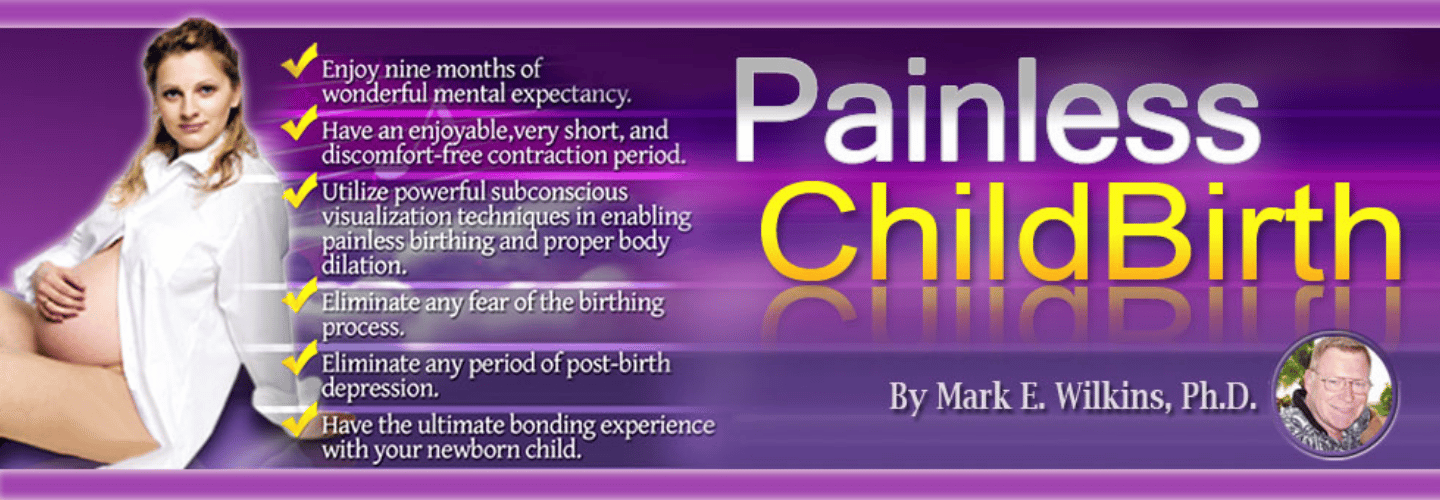
Embracing hypnosis for pain-free childbirth presents a transformative approach that transcends conventional labor experiences. This method, rooted in harnessing the mind's power to navigate and mitigate pain, offers a tantalizing prospect for expectant mothers seeking a natural and serene birthing experience. By exploring the intricate interplay between mind and body, hypnosis not only offers a potential path to pain alleviation but also holds the key to revealing a deeper connection to the childbirth journey. The allure of hypnosis lies in its promise of a childbirth experience where pain surrenders to empowerment, paving the way for a harmonious union of mind, body, and baby.
Benefits of Hypnosis for Childbirth
The benefits of utilizing hypnosis for childbirth are well-documented in various studies, showcasing its potential to enhance labor outcomes and reduce the need for medical interventions. Research has shown that hypnosis during childbirth can lead to shorter labor durations, minimizing the time spent in discomfort. Additionally, it has been linked to a decrease in medication use, with fewer women requiring narcotics, tranquillizers, or oxytocin during labor. This reduction in medication use not only benefits the mother but also potentially lowers the risk of side effects for the baby.
Furthermore, hypnosis has been associated with more spontaneous deliveries and a decrease in surgical interventions, offering a more natural birthing experience for mothers. Improved maternal outcomes, including shorter hospital stays and better APGAR scores for newborns, have been observed in studies focusing on hypnosis for childbirth. These findings highlight the positive impact of hypnosis on pain relief, labor outcomes, and overall maternal well-being within the obstetric population.
How Hypnosis Reduces Pain
Harnessing the power of the mind, hypnosis effectively reduces pain perception during childbirth by altering conscious awareness and amplifying receptivity to positive suggestions. Women using hypnosis experience a unique form of pain management that sets it apart from traditional pain relief methods. Studies comparing hypnosis groups to control groups have shown significant differences in pain perception and relief during childbirth.
Through hypnosis, individuals are guided to a state where they can reach conscious awareness and reshape their perceived experiences of pain. Unlike epidural analgesia, which numbs the body, hypnosis works by modulating brain regions involved in pain processing. This modulation contributes to the overall effects of hypnosis in decreasing discomfort and pain intensity.
Hypnosis Vs. Medical Interventions

Hypnosis offers a compelling alternative to traditional medical interventions during childbirth. It presents a natural method to manage pain and facilitate a smoother delivery process. By potentially reducing the need for pharmacological interventions, hypnosis advocates for a more holistic approach that emphasizes the body's innate ability to cope with labor.
The comparison between hypnosis and medical interventions underscores the benefits of embracing non-invasive techniques. These techniques prioritize maternal well-being and childbirth outcomes.
Hypnosis Effectiveness Compared
Comparing the effectiveness of hypnosis with traditional medical interventions for pain management during childbirth reveals compelling advantages in outcomes and patient experience.
Hypnosis has been shown to reduce the need for analgesic medications, leading to shorter labor durations and decreased medication usage. This non-pharmacological approach not only improves pain thresholds but also results in more spontaneous deliveries and fewer surgical interventions.
Studies suggest that hypnosis enhances delivery experiences, shortens hospital stays, and even boosts APGAR scores for newborns when compared to standard medical care.
The evidence supports hypnosis as a highly effective method for pain relief during childbirth, offering a holistic and beneficial alternative to medical interventions.
Benefits of Avoiding Interventions
When seeking pain relief during childbirth, considering the benefits of avoiding interventions reveals a striking contrast between hypnosis and traditional medical approaches.
Hypnosis for pain-free childbirth stands out by markedly reducing the reliance on pharmacological interventions such as analgesic medications and epidurals. Unlike medical interventions, hypnosis offers a non-pharmacological alternative, promoting a more natural labor experience.
Research indicates that hypnosis can decrease the need for labor augmentation with oxytocin, potentially lowering the risk of birth complications. Opting for hypnosis over traditional pain management methods not only minimizes the use of medications but also enhances the likelihood of a smoother, intervention-free childbirth process, fostering a more serene and empowering delivery experience.
Success Stories of Hypnobirthing
Several remarkable tales of successful hypnobirthing experiences have emerged, highlighting the transformative impact of this practice on childbirth outcomes.
Hypnobirthing has shown positive results in pregnancy and childbirth, with studies indicating shorter labor durations and reduced need for pain medication. The use of hypnobirthing techniques has been associated with improved pain thresholds, leading to decreased medical interventions during childbirth.
Research findings suggest that hypnobirthing increases the likelihood of spontaneous deliveries and decreases the need for surgical interventions. Additionally, women practicing hypnobirthing have reported enhanced maternal experiences by reducing the use of narcotics, tranquillizers, and oxytocin, ultimately promoting better pain management during labor.
Moreover, positive outcomes such as shorter hospital stays and improved APGAR scores have been linked to the implementation of hypnobirthing methods. These success stories underscore the potential of hypnobirthing in facilitating a more comfortable and pain-free childbirth experience.
Scientific Evidence on Hypnosis

Scientific investigations into the efficacy of hypnosis for pain-free childbirth have yielded compelling evidence supporting its benefits, ranging from shorter labor durations to reduced medication utilization and improved delivery experiences.
Studies have shown that hypnosis during childbirth can lead to more spontaneous deliveries, fewer surgical interventions, and improved APGAR scores for newborns.
Additionally, research indicates that hypnosis can effectively reduce the need for narcotics, tranquillizers, and oxytocin during labor, enhancing pain management for mothers.
Maternal outcomes from studies on hypnosis for childbirth have generally been positive, with shorter hospital stays and decreased labor times reported.
However, quality assessments have highlighted varying levels of quality in these studies, with some limitations such as blinding issues and high dropout rates in specific trials.
Despite these challenges, the overall evidence suggests that hypnosis can play a valuable role in enhancing the childbirth experience for women seeking a pain-free and empowering delivery process.
Empowering Women Through Hypnosis
Experience the power of hypnosis to boost confidence and establish a strong mind-body connection during childbirth.
Hypnosis can be a transformative tool that empowers women to navigate the challenges of labor with ease and grace.
Hypnosis for Confidence
Empowering women through hypnosis involves instilling confidence and self-assurance to navigate the challenges of childbirth with strength and resilience. Hypnosis for confidence provides a powerful tool for expectant mothers to cultivate inner strength and positivity, leading to a calm birthing experience. Through positive affirmations and anxiety reduction techniques, hypnosis promotes a sense of control and empowerment during labor. Women undergoing hypnosis sessions benefit from boosted self-esteem and a belief in their body's natural ability to give birth. With hypnosis, a positive mindset is fostered, enhancing women's confidence in managing labor pain effectively.
- Enhances self-assurance
- Promotes inner strength
- Cultivates positive mindset
Mind-Body Connection
The profound connection between the mind and body is harnessed through hypnosis to empower women during the childbirth experience. By tapping into this intricate mind-body relationship, hypnosis offers women a unique opportunity to take control of their pain management and birthing journey.
Through the use of positive affirmations and suggestions, hypnosis combats negative thoughts, instilling confidence and reducing anxiety and fear during labor. This technique explores the unconscious mind, addressing deep-seated concerns and promoting a sense of calmness and empowerment.
With the application of specific hypnosis techniques, women can pave the way for a more comfortable and empowering childbirth experience, turning what might be a challenging prospect into a journey of strength and resilience.
Practicality and Accessibility of Hypnosis

Accessible and practical, hypnosis for pain-free childbirth offers women a powerful tool for managing the birthing process. Learning self-hypnosis techniques can provide women with the skills needed to effectively manage labour pain and experience a pain-free childbirth. This approach is not only practical during childbirth but can also be utilized in various settings, including home births, making it a versatile option for expectant mothers. Additionally, training in hypnosis empowers women to feel in control of their childbirth experience, fostering a sense of confidence and calmness during this transformative time.
- Hypnosis provides a natural and drug-free alternative for pain management during childbirth.
- Self-hypnosis techniques offer women the opportunity to connect with their inner strength and resilience.
- By incorporating hypnosis into their childbirth preparation, women can experience long-term benefits such as improved pain management skills beyond the birthing process.
Future of Hypnosis in Childbirth
In envisioning the future of hypnosis in childbirth, the potential for revolutionizing pain management strategies and enhancing birthing experiences becomes evident. Research indicates that hypnosis during childbirth may lead to shorter labor durations, reduced medication use, and improved delivery experiences. Specific studies have shown that hypnosis can improve pain thresholds, decrease the need for medication, and shorten labor times.
Maternal outcomes associated with hypnosis during childbirth include more spontaneous deliveries, fewer surgical interventions, and positive effects on APGAR scores. Hypnosis has been linked to reductions in narcotic use, tranquillizers, and oxytocin administration during labor. However, quality assessment of studies on hypnosis for childbirth highlights varying levels of quality, with challenges such as blinding issues and high dropout rates noted in some trials.
Overcoming these challenges and further exploring the potential of hypnosis in childbirth could lead to a future where pain-free, empowering birthing experiences become the norm.
Frequently Asked Questions
How Does Hypnotherapy Help With Pain in Labor and Delivery?
Hypnotherapy aids in labor and delivery by leveraging the mind-body connection to enhance pain management. Through relaxation techniques, positive affirmations, and focused concentration, mothers can mentally prepare for childbirth, reducing stress and anxiety.
What Are the Benefits of Hypnosis During Pregnancy?
Hypnosis during pregnancy offers numerous benefits for expectant mothers. It aids in stress management, anxiety relief, and pain management through various techniques like positive affirmations, visualization exercises, and relaxation methods.
Why Is Hypnosis Effective in Reducing Pain?
Hypnosis is effective in reducing pain during childbirth due to its ability to tap into the mind-body connection. By utilizing relaxation techniques, hypnotic suggestions, deep breathing, positive affirmations, and visualizations, women can mentally prepare for labor, enhancing their pain management abilities.
Self-hypnosis empowers individuals to develop coping skills, leading to decreased discomfort and improved pain thresholds. This holistic approach to pain relief offers a natural and empowering option for childbirth.
Is Hypnosis an Effective Method for Improving the Experience of Childbirth for Mothers?
Hypnosis has emerged as a valuable tool for enhancing the childbirth experience for mothers. By tapping into comfort techniques, the mind-body connection, relaxation techniques, positive affirmations, and visualization exercises, hypnosis offers effective pain management, stress relief, and emotional support during labor.
Through self-hypnosis, mothers can feel empowered and in control, leading to shorter labor durations, reduced medication use, and overall improved outcomes.
Conclusion
To sum up, hypnosis for pain-free childbirth offers a transformative journey where mothers can tap into their inner strength and resilience.
By harnessing the power of the mind to reframe pain perception and promote positive birthing experiences, hypnosis paves the way for a smoother and more empowering childbirth process.
Embracing the future of childbirth with hypnosis can lead to a more holistic and fulfilling birthing experience for women worldwide.




